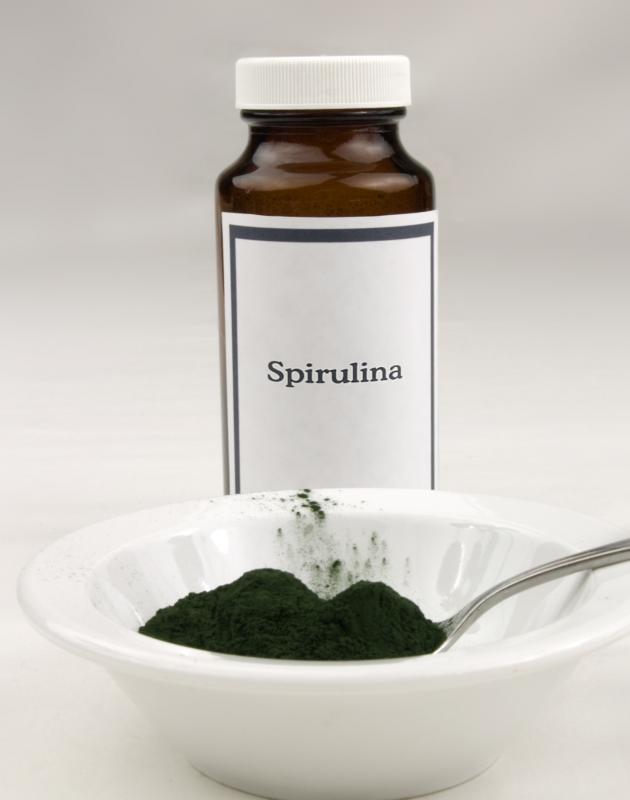At WiseGEEK, we're committed to delivering accurate, trustworthy information. Our expert-authored content is rigorously fact-checked and sourced from credible authorities. Discover how we uphold the highest standards in providing you with reliable knowledge.
What is Spirulina Platensis?
Spirulina platensis is a type of cyanobacteria, or blue-green alga, used as a food and nutritional supplement. Historically, spirulina platensis has been dried, made into cakes, and used as food by the ancient Aztecs of Mexico and the Kanembus of the Lake Chad region in central Africa. In the twentieth century, spirulina became popular as a nutritional supplement when its extensive nutritional benefits were researched and discovered. It is currently cultivated in China, India, Thailand, and the US.
Studies conducted on rats suggest spirulina platensis contains ingredients that protect against oxidation damage from free radicals. This indicates spirulina may protect against Huntington’s disease, Parkinson’s and cancer. Other animal studies have shown protective benefits against stroke damage, arthritis, allergies, inflammation, and hypertension. Studies on human subjects suggest that spirulina may also improve digestive health by helping growth of beneficial bacteria in the gastrointestinal system. One study showed that patients suffering from cancerous oral lesions experienced regression of symptoms after receiving a daily dosage of a type of spirulina.

One of the active ingredients isolated in spirulina platensis is the pigment phycocyanin, which gives spirulina platensis its characteristic blue-green color and supplies twenty percent of spirulina’s protein. Phycocyanin is used in the pharmaceutical and food industries and is considered to have antioxidant properties. After its inflammatory properties were discovered, a substance containing phycocyanin was patented as an anti-inflammatory used in animals. Although initial studies have been promising, it must be mentioned that more research must be performed before spirulina can be recommended for specific medical conditions.

Most plant-based protein is incomplete, and needs to be combined with other proteins before it can be used by the body. Spirulina platensis is a complete plant-based protein, which has given some organizations hope that it might be used to fight hunger and malnutrition in third-world countries. It also has five complete amino acids that the body cannot manufacture on its own.

The vegan community has embraced the consumption of spirulina platensis since it contains vitamin B12, which is usually only found in animal foods. Unfortunately, the form of vitamin B12 in spirulina is characterized by low bioavailability, meaning the form of vitamin B12 in spirulina is not able to be used by the body. Vegans should not rely on spirulina platensis as a source of plant-based vitamin B12 and should supplement in another form. In addition to supplying the body with protein, spirulina platensis is a rich source many other vitamins, minerals, and supplies gamma-linoleic acid (GLA), a fatty acid that the body requires but may have difficulty manufacturing. Although spirulina platensis requires more research on human subjects to verify its medical benefits, it remains a safe nutritional supplement for humans and animals.
AS FEATURED ON:
AS FEATURED ON:













Discuss this Article
Post your comments